Mercedes: Engine boss 'assuming Ferrari wins & Honda threat'
- Published
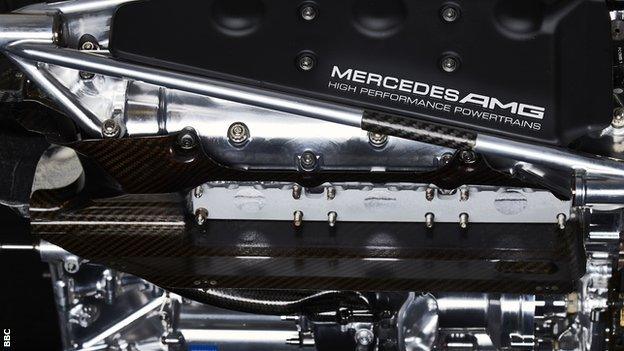
Mercedes have dominated Formula 1 over the past two years
World champions Mercedes are expecting a serious challenge from Ferrari this season and also say McLaren-Honda are a "big threat".
Mercedes team-mates Lewis Hamilton and Nico Rosberg have dominated the last two years, winning 32 of the 38 races.
But Mercedes engine boss Andy Cowell said: "Nobody here is assuming we are going to win.
"Everybody here is assuming we're going to get beaten by Ferrari, and Honda are a big threat."
Cowell described Ferrari's progress with their engine in 2015 as "remarkable" - Sebastian Vettel won three races after a winless 2014 for the team.
Hamilton won 10 grands prix on his way to his second world title, with Rosberg taking six.
Honda struggled badly on their return to F1 last season, McLaren lagging about 2.5 seconds off the pace for much of the season largely as a result of deficiencies in the engine.
But Cowell said this was partly a result of the Japanese company having had less development time than the companies who competed in 2014.
"They have come in quickly and they are learning in front of the public but they're hugely determined, and partnered with McLaren, who are hugely determined.
"We know exactly how McLaren work in terms of a data-driven approach, so they are going to make some big, big gains."
Mercedes supplied engines to McLaren from 1995 to 2014, and were their works engine partner until the car company established its own team in 2010.
More gains from Mercedes
The Mercedes engine has set the standard in F1 since the introduction of turbo hybrid engines in 2014, although Ferrari progressed last season to the point at which their engine was almost a match.

Mercedes and Ferrari have made the most competitive turbo hybrid engines
But Cowell said there was no sign of the world champions running out of ideas to improve their engine.
"We've made some good gains over the past two years," he said. "I don't see that stopping. I don't think anybody here sees that we have reached the limit."
'Mind-blowing' technology
Cowell said the pursuit of performance in F1 was leading the engine companies to make huge strides in efficiency that would transfer directly to road cars.
The F1 engine regulations revolve around two different kinds of fuel limit - a maximum allowance and a maximum fuel-flow rate.
These, Cowell said, had led to "mind-blowing" gains in thermal efficiency - the measure of how much of the energy in the fuel is converted into power from the engine.
He said the previous F1 engines used until 2013, which were 2.4-litre naturally aspirated V8s, had a thermal efficiency of 29% - about the same as a road-going petrol. A road-car diesel engine is in the region of 38% efficiency.
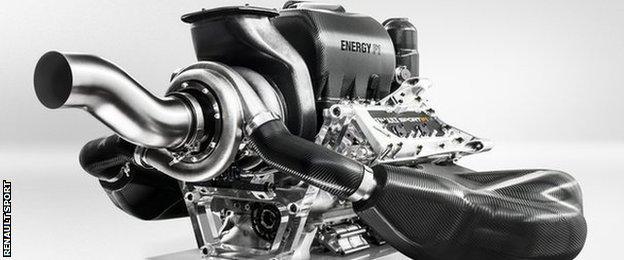
Renault suffered reliability problems during 2015 with their version of the turbo hybrid V6 engines
The thermal efficiency of the F1 turbo hybrids was more than 45%, Cowell said, and greater than 50% when the application of the energy regenerated by the hybrid system from the turbo and rear axle was taken into account.
"Thermal efficiency went up for '15 and perhaps it's going to go up in 2016 and it's definitely going to go up in the future," he said.
"Where we're at with our thermal efficiency is mind-blowing when you step back and look at it," he said. "And if we can apply that to the road-car world without losing that high efficiency, it will be tremendous."
The big caveat, he pointed out, is that the road-car drive cycle is different to what drivers do in F1 cars.
"We drive to the shops. None of us stays full throttle all the way up to the corner and then brakes at 5G," he said.
"But the step gains are considerable and they are greater than we are seeing in the road-car world even today."
- Published8 February 2016
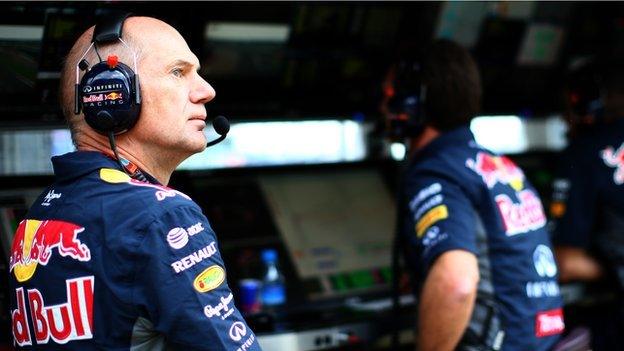
- Published12 February 2016
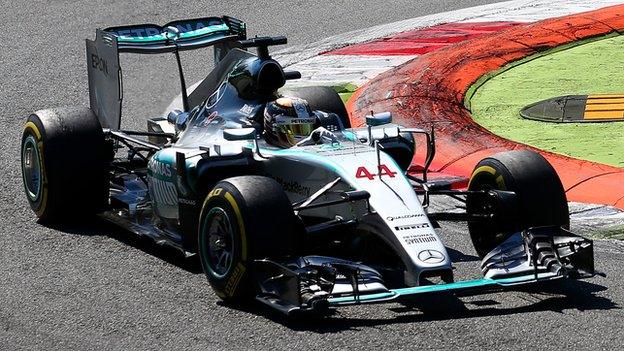
- Published4 February 2016
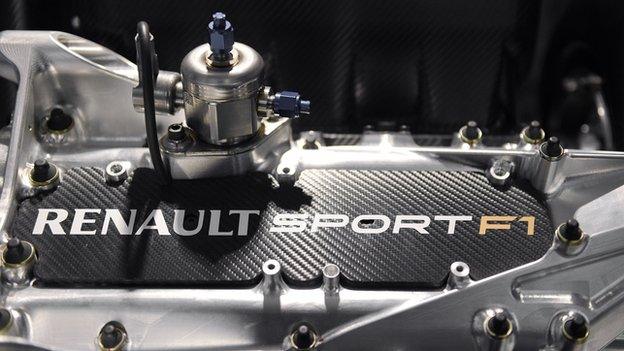
- Published18 December 2015

- Published2 November 2018

- Published26 February 2019
